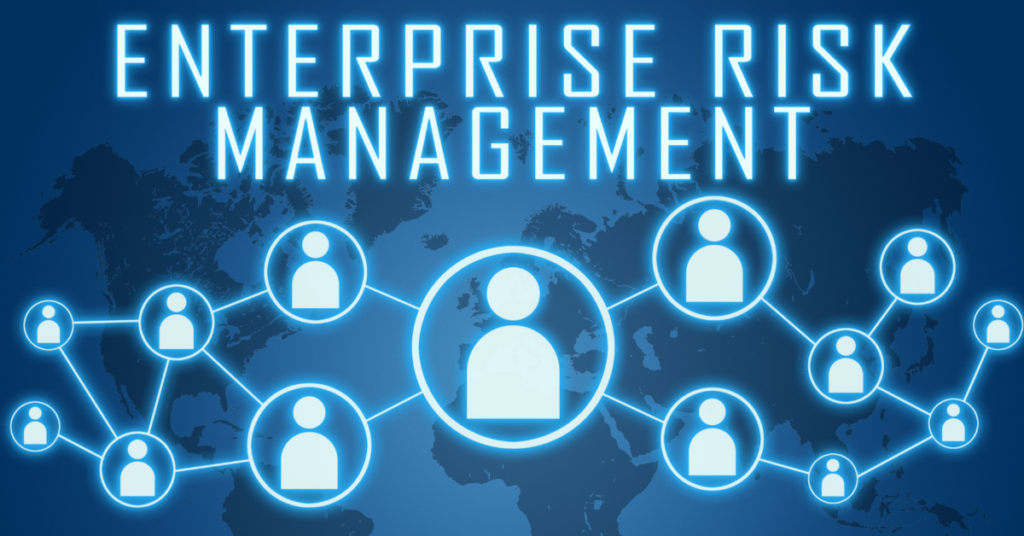What is Enterprise Risk Management and Is It a Good Career?

- What is the Role of Enterprise Risk Management in Organizations?
- How Can Enterprise Risk Management Benefit Management Professionals in Their Careers?
- What Skills and Qualifications are Necessary for a Career in Enterprise Risk Management?
- What are the Potential Job Roles Within Enterprise Risk Management?
- What Industries or Sectors Require the Expertise of Enterprise Risk Management Professionals?
In today’s world, where business challenges are constantly on the rise, the importance of Enterprise Risk Management (ERM) has never been more evident. For instance, the global ERM market has seen remarkable growth, jumping from $4, 328.00 million in 2021 to a projected $6,591.92 million by 2029. This growth, at a steady rate of 5.40%, clearly shows that ERM is far more than a passing trend; it is a crucial element of contemporary business strategy. In this blog, we dive deep into the world of ERM, exploring its critical role in organizations, the exciting career opportunities it presents, and the essential skills needed to thrive in this field.
What is the Role of Enterprise Risk Management in Organizations?
Enterprise risk management is a strategic, structured approach to identify, assess, manage, and mitigate risks across an organization. In essence, it encompasses a broad spectrum of risks, including financial, operational, technological, and reputational. In today’s business world, ERM proves to be extremely crucial. For instance, according to Gitnux, a staggering 76% of companies have already implemented or are planning to implement an ERM program, underscoring its growing importance.
In organizations, the role of ERM is multifaceted and critical. In essence, it serves as a safeguard, ensuring that risks are not only identified but also managed proactively. Additionally, this management helps in aligning risk appetite with strategy, thus facilitating informed decision-making. Moreover, enhancing resilience and enabling organizations to anticipate and adapt to various internal/external changes are two integral aspects of what is ERM. The enterprise risk management framework plays a pivotal role in this process, providing a structured methodology for risk assessment and management and ensuring a comprehensive approach to organizational risk management.
ALSO READ: Finance Course for Non-Finance Professionals: A Comprehensive Guide
How Can Enterprise Risk Management Benefit Management Professionals in Their Careers?

1. Consistent and Efficient Operations
Enterprise risk management fosters an environment of consistency and efficiency within organizations, streamlining processes and reducing redundancies. Additionally, it ensures that operations align with the overall strategic goals, thereby enhancing operational effectiveness.
2. Boosting Security & Confidence
Security is of utmost importance today, and the enterprise risk management framework provides a robust framework for managing cybersecurity risks. Consequently, it instills confidence in an organization’s ability to protect its data and assets.
3. Fostering Financial Health
Understanding what is ERM contributes to healthier financials by identifying and mitigating financial risks. Furthermore, it plays a crucial role in avoiding costly setbacks and optimizing financial performance.
4. Enhancing Satisfaction Among Employees and Customers
ERM’s holistic approach improves workplace safety and operational reliability, leading to higher employee satisfaction. Moreover, it ensures customer satisfaction by delivering consistent, high-quality products and services.
5. Promoting Transparency in Risk Management
ERM promotes transparency in risk management, providing a clear view of potential risks and their impacts. Thus, this transparency is essential for stakeholders to understand and trust the organization’s risk management practices.
6. Optimizing Resource Utilization
Through ERM, organizations can allocate resources more effectively, ensuring that they are used where they are most needed and can have the greatest impact.
ALSO READ: What is Financial Leadership? 5 Essential Skills to Look Out for
What Skills and Qualifications are Necessary for a Career in Enterprise Risk Management?
1. Problem-Solving and Analytical Skills
Problem-solving and analytical skills are fundamental in enterprise risk management, as they enable professionals to identify and assess risks effectively. And these skills are crucial for navigating complex risk scenarios and devising strategic solutions.
2. Financial and Regulatory Knowledge
Moreover, a deep understanding of financial and regulatory aspects is essential in ERM. In essence, this knowledge helps professionals comprehend the financial implications of risks and ensures compliance with regulatory requirements.
3. Business Operations Understanding
Furthermore, a thorough grasp of business operations is key in ERM. In essence, it aids professionals in quantifying risks and crafting effective risk management strategies, often drawing on real-world enterprise risk management examples for guidance.
4. Mathematics Skills
Mathematics skills are also vital in ERM, particularly for data analysis and risk modeling and gaining hands-on experience in enterprise risk management examples. In essence, these skills are essential for creating accurate and reliable risk assessments.
5. Leadership and People Management Abilities
Furthermore, leadership and people management abilities are indispensable in enterprise risk management. In essence, they ensure the effective implementation of strategies and foster a risk-aware culture within organizations, guiding teams and facilitating cross-departmental communication.
6. Academic Qualifications
Typically, a Bachelor’s Degree in Business, Finance, or a related field lays the foundation for a career in ERM. For advanced roles, a master’s degree or certifications like CRM or PRM can be highly advantageous.
ALSO READ: Top 5 New-Age Roles and Responsibilities of a Chief Financial Officer
What are the Potential Job Roles Within Enterprise Risk Management?

1. Risk Manager
Risk managers, with an average annual enterprise risk management salary of around $154,971, play a vital role in conducting comprehensive risk assessments and mitigation strategies.
2. Marketing Manager
With a median salary of $105,320, marketing managers are instrumental in devising and executing advertising strategies and pinpointing viable market opportunities.
3. Sales Manager
Sales managers in enterprise risk management draw a median salary of $97,077. They manage sales department operations, including establishing sales targets and tracking sales performance, which is essential for driving business growth.
4. Financial Analyst
Financial analysts, with a median enterprise risk management salary of $81,603, play a crucial role in advising organizations on investment choices and analyzing market trends and financial data.
5. Management Analyst
Earning a median salary of $77,189, management analysts evaluate and enhance organizational efficiency and profitability.
6. Claims Investigator
Claims investigators, earning a median salary of $69,847 annually, specialize in evaluating insurance claims. They scrutinize claims submitted to insurance firms, ensuring accuracy and legitimacy.
What Industries or Sectors Require the Expertise of Enterprise Risk Management Professionals?
1. Financial Sector
The financial sector, facing regulatory complexities, heavily relies on enterprise risk management expertise. This reliance is due to the need to manage financial risks and regulatory compliance.
2. Health Care
Additionally, the health care industry benefits greatly from ERM strategies. These strategies are crucial for addressing compliance and patient safety challenges in this sector.
3. Technology Sector
The technology sector actively seeks ERM professionals. Their focus is on mitigating risks associated with cybersecurity and rapid technological advancements.
4. Manufacturing
Furthermore, manufacturing industries require ERM expertise to manage supply chain and operational risks. This need stems from the complexities of global manufacturing processes and logistics.
5. Government Entities
Lastly, government entities are integrating ERM into their strategies. They manage public resources and policy risks, making ERM essential for public sector governance and risk management.
ALSO READ: 7 Factors to Consider Before Signing up for a Chief Financial Officer Course
In conclusion, if you are looking to learn more about the strategic necessity of enterprise risk management and unlock your career opportunities, consider enrolling in Emeritus’ tailor-made finance courses.
Write to us at content@emeritus.org
















